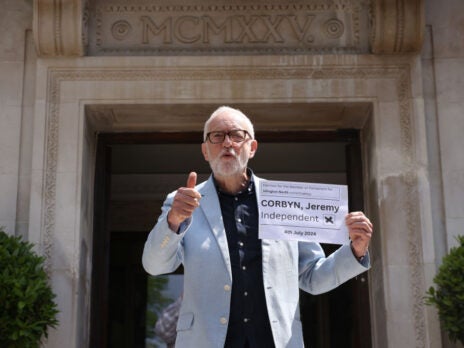
It is obvious why the Conservatives might regard immigration as an issue on which the party can score electorally. Its success in 2019 was founded on persuading three-quarters of Leave voters to back Boris Johnson to “get Brexit done” – and for many Leave voters, a wish to see immigration reduced was a key motivation for the choice they made in the 2016 EU referendum. Taking a tough line on immigration would seem a potential way of rebuilding the coalition that gave the Conservatives their success at the 2019 election.
Indeed, immigration is still a key dividing line both between Remainers and Leavers, and Conservative and Labour supporters. According to YouGov’s regular tracking of political attitudes, only 9 per cent of 2019 Conservative voters and 7 per cent of 2016 Leave voters think the level of immigration over the past ten years has been good for Britain, whereas 42 per cent of Labour voters and 43 per cent of Remainers believe it has been. Similarly, according to a poll conducted over the summer by Ipsos for the British Future think tank, 62 per cent of current Conservative supporters and 66 per cent of those who voted Leave believe immigration should be reduced, whereas just 29 per cent of Labour supporters and 25 per cent of Remainers share that opinion.
Meanwhile, on the issue of migrants crossing the Channel that has been prominent in this week’s news, the same Ipsos poll showed that while just 26 per cent of Labour supporters and 25 per cent of Remainers support sending to Rwanda asylum seekers who come across to the UK by boat, 63 per cent of Conservatives and 64 per cent of Leavers back the government’s policy. And in the last week People Polling have found that 74 per cent of Conservatives think that nobody who crosses the Channel “unlawfully” should be granted asylum in the UK, whereas only 30 per cent of Labour voters support that proposition.
The trouble is, making rhetorical appeals to your core supporters is one thing, delivering on that rhetoric is potentially quite another. Controlling immigration is proving more difficult for this government than the famous referendum slogan of “take back control” implied, a difficulty that the sight of people crossing the Channel in small boats has served to dramatise. As a result of a perceived gap between promise and reality, the Conservatives’ competence on the issue is being called into question. Far from simply being a “wedge” issue to divide voters, immigration has also become a question of credibility.
Few voters are willing to give the government credit for its handling of immigration. According to YouGov, no fewer than 78 per cent of 2019 Conservative voters believe that it is handling immigration badly, as do 82 per cent of Leavers, a perception that predates the government’s recent political difficulties. According to Redfield & Wilton, 55 per cent of those who voted Conservative in 2019 disapprove of the government’s performance on immigration. Meanwhile, according to Ipsos, 67 per cent of Leave voters and 56 per cent of 2019 Conservatives are dissatisfied with the way the current government is handling immigration. Indeed, Leavers appear to be even more critical of the government than Remainers on this issue.
[See also: Are the Tories finished?]
These perceptions are not simply a reflection of the government’s inability to stop asylum seekers from crossing the Channel (though over half of Leave voters think that the number has increased “a lot”), or its slowness in processing the claims of those who do make it to the UK. Conservatives and Leavers also appear to have noticed that while migration from the EU has fallen since the Brexit referendum, that from outside the EU has not, while even in the case of EU migration they are not sure that Brexit itself has made much difference.
According to Ipsos, on balance Conservative supporters (by 44 per cent to 27 per cent) and Leave voters (41 per cent to 26 per cent) are inclined to the view that migration from the EU has fallen in recent years. However, both groups are also more likely to think that migration from outside the EU (for which the rules are now more liberal than they were before Brexit) has increased than they are to say it has fallen – by 38 per cent to 25 per cent in the case of Conservatives and 37 per cent to 24 per cent in the case of Leavers. Meanwhile, according to Redfield & Wilton polling for the UK in a Changing Europe think tank, even in the case of migration from the EU, both Conservative voters (by 37 per cent to 18 per cent) and Leavers (37 per cent to 17 per cent) are more likely to feel that the level is higher now than it would have been if Brexit had not happened than they are to believe that it is lower.
Meanwhile, even many of those who are inclined to say that there is too much immigration believe that the country should admit those who can fill crucial shortages. As many as 54 per cent of Conservatives and 49 per cent of Leavers believe that Britain should admit more nurses. Equally, 42 per cent of Conservatives and 36 per cent of Leavers say the same about care home workers, while similar proportions apply in the case of seasonal agricultural workers. As the government discovered last year when petrol stations and supermarket shelves temporarily emptied as a result of a lack of lorry drivers, taking a tough line on immigration can rapidly become unpopular if it disrupts people’s everyday lives.
Given the views of many of the party’s supporters, doubtless many Conservative MPs feel that Britain should take a tougher line on immigration. But they also need to ask themselves what can be achieved in practice. For diverting voters’ attention towards an issue on which you are unable to deliver is not a route to electoral success.
[See also: Voters now think Brexit was a mistake. But do they want to reverse it?]


